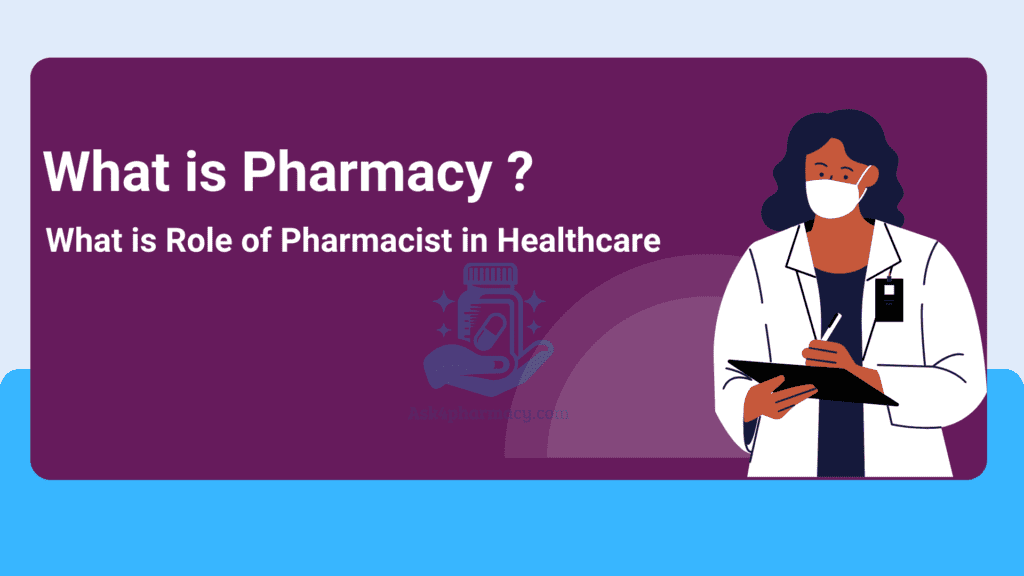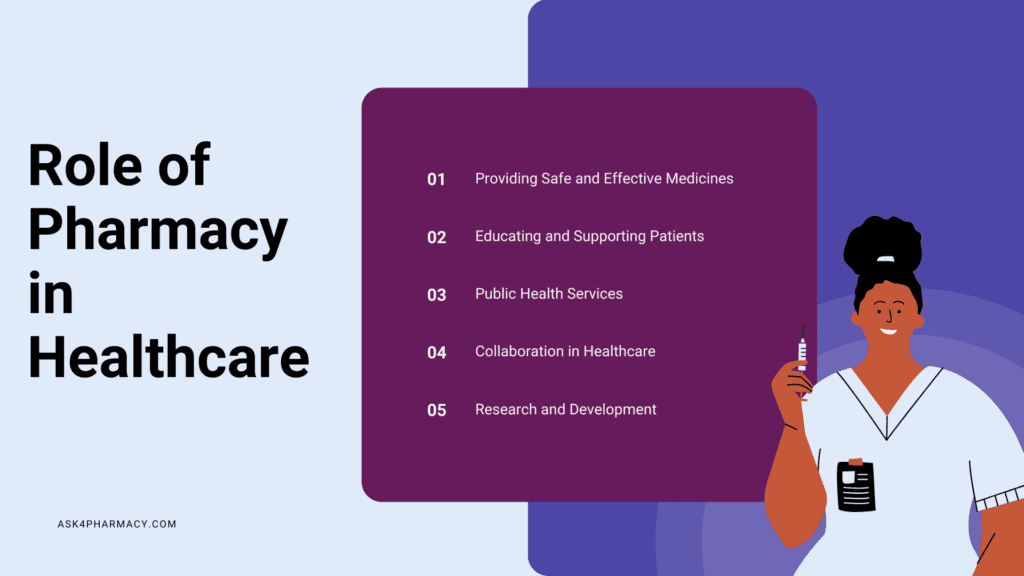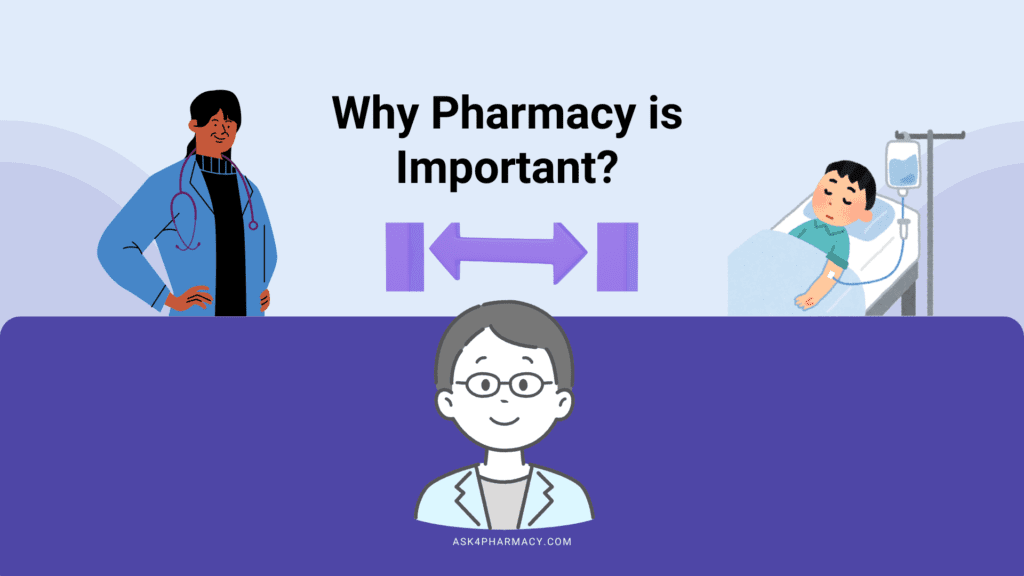What is Pharmacy?
Pharmacy is a vital branch of healthcare that focuses on the preparation, distribution, and safe use of medicines. It combines science and healthcare practice to ensure that patients receive the right medications and guidance for managing their health.

Pharmacy is not just about dispensing medicines, it involves understanding how drugs work in Human and animals, how they interact with other medications, and how they can improve health outcomes. Pharmacists, who are healthcare professionals specializing in pharmacy, play a key role in ensuring public health through safe medication use and patient care.
Role of Pharmacy in Healthcare

Pharmacy is a cornerstone of the healthcare system, contributing to better health outcomes in several ways:
1. Providing Safe and Effective Medicines
Pharmacy ensures that medicines are made, tested, and distributed under strict safety and quality standards. Through pharmacies, patients receive the right medication for their conditions, along with instructions on proper use.
2. Educating and Supporting Patients
Pharmacy is essential in educating patients about their treatments. Pharmacists guide patients on:
- How to take their medicines correctly.
- Potential side effects and how to handle them.
- Managing chronic illnesses like asthma, diabetes, or high blood pressure.
3. Public Health Services
Pharmacy contributes to public health by offering services such as:
- Vaccinations (e.g., flu shots, COVID-19 vaccines).
- Health screenings (e.g., blood pressure, cholesterol).
- Lifestyle counseling (e.g., smoking cessation, weight management).
4. Collaboration in Healthcare
Pharmacy professionals work with doctors, nurses, and other healthcare providers to create and monitor treatment plans. This collaboration ensures that patients receive the best possible care, especially for complex or serious conditions.
5. Advancing Medicine
Pharmacy involves research and development to create new medications and improve existing ones. Pharmacists work in laboratories to develop treatments that address emerging health challenges and improve quality of life.
Why Pharmacy is Important
Pharmacy bridges the gap between medical science and patient care. It ensures that medicines are used safely and effectively, helping prevent harmful drug interactions and reducing the risk of misuse.

Key contributions of pharmacy include:
- Improving Public Health: Through education and preventive services, pharmacy helps communities stay healthier.
- Enhancing Patient Outcomes: By providing personalized medication plans, pharmacy improves recovery rates and quality of life.
- Supporting Healthcare Systems: Pharmacy reduces the burden on hospitals by managing minor health issues and guiding patients in medication use.
The Future of Pharmacy
Pharmacy is constantly evolving to meet the needs of modern healthcare. With advancements in technology, pharmacists are playing a bigger role in personalized medicine, telehealth services, and public health initiatives.
Pharmacy will continue to be essential in addressing global health challenges, ensuring safe medication use, and improving the overall well-being of individuals and communities.